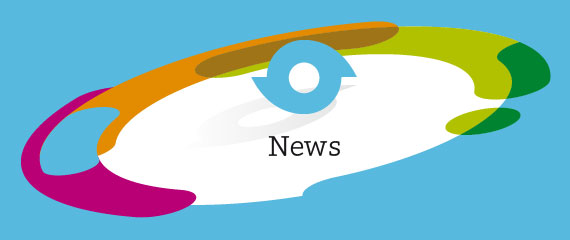Professor of Classical & Mediterranean Archaeology Miguel John Versluys, also director of the Graduate School of the Leiden University, Faculty of Archaeology and member of the LeidenGlobal Board, just held his inaugural lecture at Leiden University and received the largest NWO subsidy.
After studying at Leiden University, he also obtained his PhD degree in 2001 in Leiden for a study of images of Egypt in Roman visual material culture and, in broader terms, the meaning of Aegyptiaca Romana.
Following many years of lecturing at the University of Amsterdam and Leiden University, he became a Professor of Classical and Mediterranean Archaeology at the faculty of Archaeology, Leiden University in 2016. In his inaugural lecture he spoke about the crucial role material culture plays in globalisation. He based his teaching on research into the origin and growth of the Roman Empire from the 3rd century BC. Miguel John argued that 'communities always adopt the best and most useful aspects of other communities and integrate them in what they regard as their own culture'. Material culture, such as objects, can be seen as one of those objects that the Romans took over from other cultures to develop their own identity, therefore participating with globalisation in that period of time. By looking into how the Romans dealt with material culture and globalisation, we have an opportunity to see ourselves in a different light as well nowadays.
Miguel John Versluys focuses on interdisciplinarity in his research. As a Classical & Mediterranean archaeologist, he actively works together with (pre)historians, art historians, classicists, Egyptologists, Near Eastern scholars, anthropologists, sociologists and scientists, as he believes that this approach is the only way to arrive at a better and comprehensive understanding of the big picture he is interested in. One of the ways in which he puts this view in practise is through the fact that he is co-founder of the Material Agency Forum: a podium for research on material agency taking place at Leiden University and beyond.
Miguel John Versluys is currently heading the NWO-funded VICI project Innovating objects: 'The impact of global connections and the formation of the Roman Empire (ca. 200-30 BC) (2016-2021)' and he is one of its six main coordinators of the Graviation program Anchoring Innovation, a ten-year study of innovation processes in antiquity funded by the Dutch Ministry of Education, Culture and Science (2017-2027). The project is about what we can learn from the Ancient world in terms of innovation.
This latest program has received a lot of attention, since it is the first time that the faculty of Humanities from Leiden University has received this NWO Gravitation Award of 18.8 million dollars.
You can read more about the project in this interview in the Leidraad, the alumni magazine of Leiden University (In Dutch).
Next year, Miguel John Versluys will be a scholar in residence at the Getty Research Institute in Los Angeles. During his stay at the Getty he will, first of all, explore its collections in search for “innovating objects”. The second goal is to start working on a monograph, provisionally entitled 'Rome: a global history', that will rewrite the history of the formation of the Roman Empire in the first two centuries BC from the perspective of increasing connectivity and developments taking place in (central) Eurasia - and do so on the basis of objects and their affordances. According to Miguel John 'Such a book would at last put the Roman world in its Eurasian context!'

